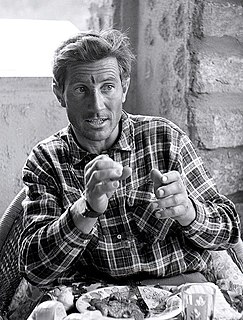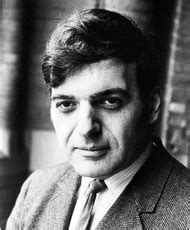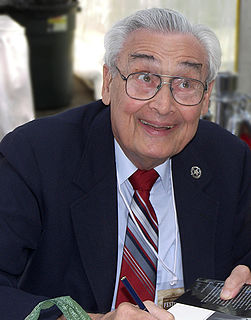A Quote by Hannah Arendt
Caution in handling generally accepted opinions that claim to explain whole trends of history is especially important for the historian of modern times, because the last century has produced an abundance of ideologies that pretend to be keys to history but are actually nothing but desperate efforts to escape responsibility.
Related Quotes
The introduction of the Christian religion into the world has produced an incalculable change in history. There had previously been only a history of nations--there is now a history of mankind; and the idea of an education of human nature as a whole.--an education the work of Jesus Christ Himself--is become like a compass for the historian, the key of history, and the hope of nations.
'A Naval History of Britain' which begins in the 7th century has to explain what it means by Britain. My meaning is simply the British Isles as a whole, but not any particular nation or state or our own day... 'Britain' is not a perfect word for this purpose, but 'Britain and Ireland' would be both cumbersome and misleading, implying an equality of treatment which is not possible. Ireland and the Irish figure often in this book, but Irish naval history, in the sense of the history of Irish fleets, is largely a history of what might have been rather than what actually happened.
For me, the value of a climb is the sum of three inseparable elements, all equally important: aesthetics, history, and ethics. Together they form the whole basis of my concept of alpinism. Some people see no more in climbing mountains than an escape from the harsh realities of modern times. This is not only uninformed but unfair. I don’t deny that there can be an element of escapism in mountaineering, but this should never overshadow its real essence, which is not escape but victory over your own human frailty.
I thought I knew who Alan Turing was. I've always loved history, and I was actually shocked by how little I actually knew. I was amazed this wasn't common knowledge. Why wasn't he on the front covers of my history books? He's one of the great thinkers of the last century, and he was sort of pushed into the shadows.
History, when rightly written, is but a record of providence; and he who would read history rightly, must read it with his eyes constantly fixed on the hand of God. This statement of a nineteenth-century historian sums up the responsibility of the Christian teacher of history, for he who would teach history or any subject matter rightly, must teach it with his eyes constantly fixed on the hand of God.
History is hard to know, because of all the hired bullshit, but even without being sure of "history" it seems entirely reasonable to think that every now and then the energy of a whole generation comes to a head in a long fine flash, for reasons that nobody understands at the time--and which never explain, in retrospect, what actually happened.
Major Trends [is] the canonical modern work on the nature and history of Jewish mysticism. For a sophisticated understanding, not only of the dynamics of Jewish mysticism, but of the exquisite complexities of Jewish history and tradition, Major Trends is a major port of entry through which one must pass.
For society as a whole, nothing comes as a "right" to which we are "entitled." Even bare subsistence has to be produced-and produced at a cost of heavy toil for much of human history. The only way anyone can have a right to something that has to be produced is to force someone else to produce it for him. The more things are provided as rights, the less the recipients have to work and the more others have to carry their load.
When I came overseas, I realized that there are many ideologies and many trends, and it's also very hard to produce honest art and honest literature. I decided that I didn't want to follow any of these ideologies or trends, because that's also a kind of pressure that doesn't allow absolute freedom. So I decided that I was only going to produce works that were satisfactory to me, and that meant not following any trends and being anti-ideological.







































